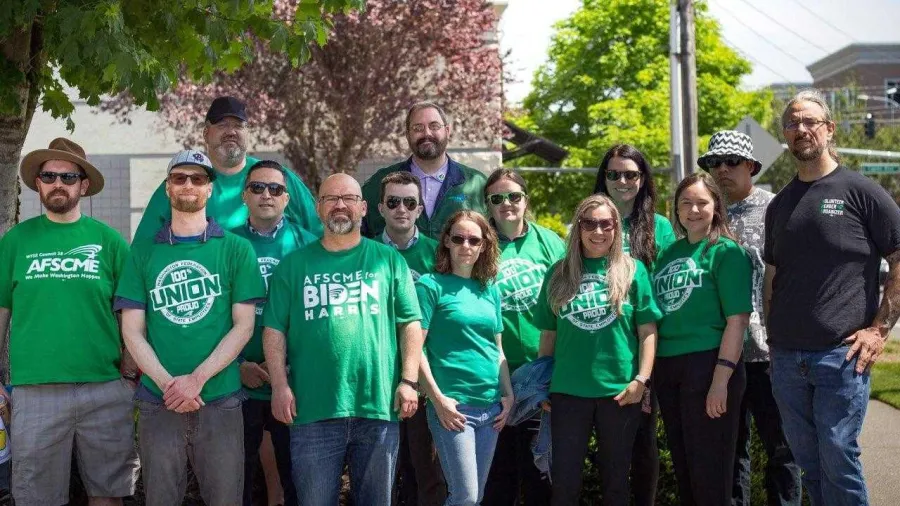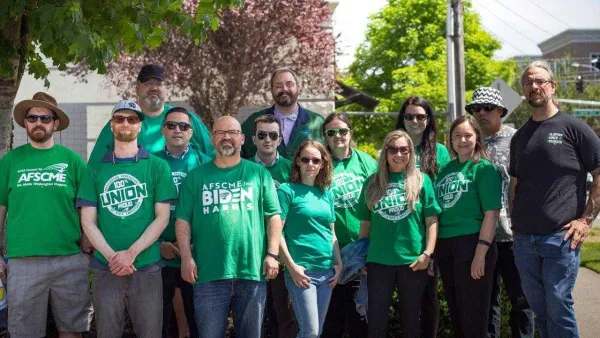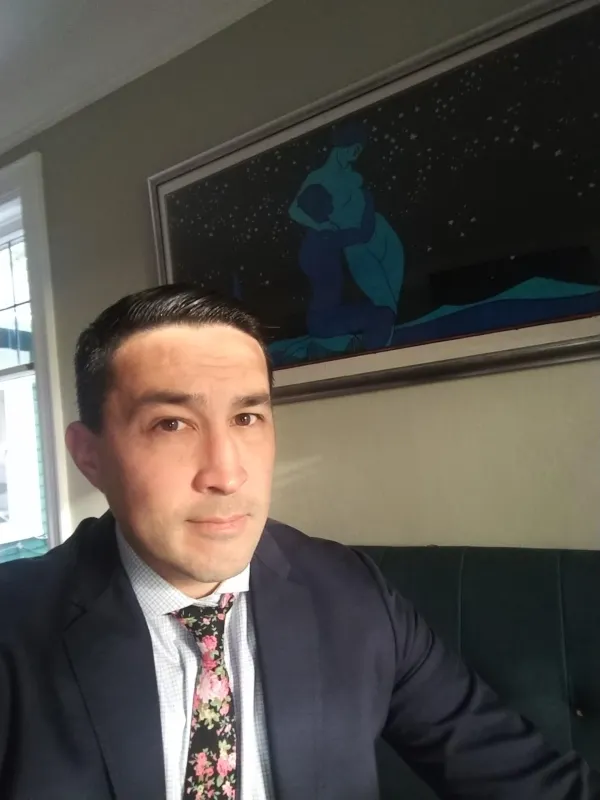WFSE Members at DFI Show What Solidarity Can Do

Just three weeks after officially joining WFSE, several Washington State Department of Financial Institutions (DFI) employees were dismayed to learn their pay had been cut. After collecting over 1000 petition signatures, months of organizing, and a planned picket, these members won their fight to have their pay reinstated—and showed their coworkers what solidarity and union power can achieve.

“I always thought, ‘If you’re going get a law degree, put it to use,’” said Kristina Shenefelt, WFSE member and financial legal examiner at DFI. “If I stop a foreclosure sale, that’s rewarding. That’s saving someone’s home.”
Workers like Shenefelt and her colleagues could earn significantly more in private sector jobs. But they’re not in it for the money.
Shenefelt and her coworkers were frustrated that leadership at DFI wasn’t hearing their feedback about turnover, retention, remote work, and the best ways to maintain productivity post-pandemic.

“We all felt pretty confident that union membership would be a good tool and that we would like to be a part of it. We were all really excited about that, to finally have a voice in decision-making,” Sugimoto said.
In the summer of 2022, their organizing efforts were successful, and they voted unanimously to join WFSE.
“They just weren’t listening to us, no matter what we did. So we organized, and then immediately after, it was a slap. They took pay from three of our bargaining unit members,” said Shenefelt.
The agency claimed the new contract did not allow three of the new bargaining unit members’ retention pay—a point expert union representatives disputed.
The bargaining unit rallied around the three members whose pay had been cut.
“Every single one of us immediately knew we wouldn’t let that stand,” said Chris Vasseur-

With support from their council representative, the member action team (MAT) at DFI began to distribute a petition, garnering over 1100 signatures.
The agency made an offer to settle by providing back pay, but without reinstating the retention premiums—and there was more at stake. The agency had targeted bargaining unit members, and unrepresented workers were unsettled.
“Nobody wanted to join us,” said Shenefelt. “Other employees thought, ‘They took your pay. You shouldn’t have joined the union.’”
The DFI member action team realized it was time to escalate their efforts. Not content to accept back pay with no guarantee of future retention premiums, they filed an unfair labor practice and began to plan a picket at DFI.
“People were worried about picketing,” said Shenefelt. “They still didn’t want to rock the boat too much—but we’d already rocked the boat. Why stop here? We’re such a tiny group in such a tiny agency, and it’s been so powerful for us to have a seat at the table.”
Organizers expected a large turn out for the DFI picket, from WFSE union president Mike Yestramski to Attorney General’s Office employees and WFSE members from other agencies.
“Less than two hours before the picket was going to start, the agency director accepted all of the conditions we wanted in the settlement,” said Vasseur-Landriault. “It was the public pressure campaign that worked.”
After nine months of organizing as a MAT team, the DFI bargaining unit celebrated their win: not only had they reinstated retention pay for three dedicated public employees, they’d shown management and their coworkers that they could solve real problems as a union.
“We were able to achieve concrete victories through our process as a union,” said Sugimoto. “Everyone felt more confident afterward that we could successfully stand up for ourselves and the issues we cared about.”
Union membership brings a seat at the table and concrete benefits.
“This union represents 45,000-plus workers, and this dispute really showed me the power of it,” said Sugimoto. “It’s valuable, far more valuable than the dues and other commitments that members have. It definitely more than pays for itself.”
Vasseur-Landriault agreed, citing an upcoming ten-percent salary bump he’s expecting as a result of participating in a training plan. But input in the functioning of the agency is important, too.
“We didn’t have a voice before and now we’re going to craft policies that will sit in stone forever,” he said.
“It’s an amazing feeling,” said Shenefelt. “We’re fighting for everyone, whether they’re a part of our union or not. These wins will be applied to everyone—better conditions apply to everyone.”
There are more fights ahead for union members at DFI—but for a group of public employees dedicated to helping others, it’s well worth the effort.
Interested in speaking up for your coworkers and making positive change at work? Start a member action team! Learn more and get your free tool kit here.
